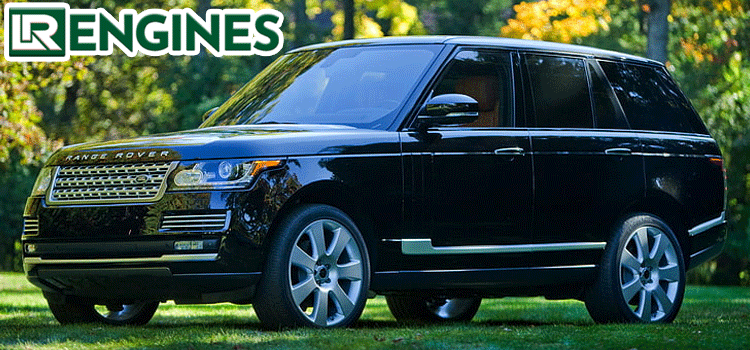What Are The Best Practices For Optimizing The Lifespan Of The Range Rover 2.0 Engine?

The Range Rover 2.0 engine, known for its blend of performance and efficiency, is a remarkable piece of automotive engineering. To ensure its longevity and reliability, it’s essential to adhere to specific maintenance and operational practices. We outlines the best strategies for optimizing the lifespan of your Range Rover 2.0 engine, highlighting the importance of routine care, driving habits, and the potential benefits of opting for reconditioned engines or engine replacement when necessary.
Regular Oil Changes
Oil is the lifeblood of any engine, and the Range Rover 2.0 is no exception. Regular oil changes are critical to maintaining engine health. The oil lubricates the engine’s internal components, reducing friction and wear. Over time, oil degrades and accumulates contaminants, which can cause damage if not replaced.
It’s recommended to change the oil every 7,500 to 10,000 miles, depending on your driving conditions and the type of oil used. Synthetic oils, which last longer and perform better at extreme temperatures, are a good choice for the Range Rover 2.0. Always use the oil grade specified in your owner’s manual to ensure optimal performance and protection.
Use Quality Fuel
The quality of fuel you use significantly impacts the longevity of your engine. Premium fuels contain detergents that help keep the engine clean by preventing deposit buildup on valves and injectors. The Range Rover 2.0 engine is designed to run efficiently on high-octane fuel, which improves performance and reduces the risk of knocking.
Regularly using high-quality fuel can improve combustion efficiency, leading to better engine performance and reduced wear. Additionally, consider using fuel system cleaners periodically to maintain optimal fuel system health and prevent clogging of fuel injectors.
Maintain Cooling System
The cooling system is vital for preventing your engine from overheating, which can cause severe damage. Regularly check and maintain the coolant level, and ensure the coolant mixture is appropriate for your climate. Inspect the radiator, hoses, and water pump for leaks or signs of wear.
Flushing the cooling system according to the manufacturer’s recommendations is also crucial. This removes old coolant and contaminants, ensuring the system operates efficiently. An overheating engine can lead to warped components and head gasket failure, making cooling system maintenance essential for engine longevity.
Follow Manufacturer’s Maintenance Schedule
Adhering to the maintenance schedule outlined in your Range Rover’s owner’s manual is one of the most effective ways to extend the life of your engine. This schedule includes essential services such as oil changes, air filter replacements, spark plug checks, and more.
Routine inspections allow you to identify and address potential issues before they become significant problems. For example, timely replacement of the timing belt or chain can prevent catastrophic engine damage. Regular maintenance also ensures that your vehicle performs optimally, enhancing fuel efficiency and overall driving experience.
Gentle Driving Habits
How you drive directly affects the longevity of your Rangr Rover Engine. Aggressive driving, such as rapid acceleration and hard braking, puts unnecessary stress on the engine and other components. Instead, aim for smooth and gradual acceleration, and avoid excessive idling.
Allow the engine to warm up properly before driving, especially in cold weather. This practice ensures that the oil circulates effectively, reducing wear on the engine’s moving parts. Additionally, avoid driving at consistently high speeds for prolonged periods, as this can lead to overheating and increased engine wear.
Address Issues Promptly
Ignoring warning signs or delaying repairs can lead to more severe and costly engine problems. If you notice unusual noises, vibrations, or warning lights on your dashboard, have your vehicle inspected by a qualified mechanic immediately.
Early detection and repair of issues such as leaks, worn components, or faulty sensors can prevent further damage and extend the life of your engine. For example, a minor oil leak can lead to significant engine damage if left unaddressed. Promptly addressing such issues ensures that your engine remains in good working condition.
Consider Reconditioned Engines
In some cases, despite your best efforts, an engine may need significant repairs or replacement. Reconditioned engines offer a cost-effective alternative to buying a new engine. These engines are dismantled, cleaned, and rebuilt with new or refurbished parts to restore them to like-new condition.
Opting for a reconditioned engine can save you money while providing reliable performance. Ensure that the reconditioned engine comes with a warranty and is installed by a reputable supplier to guarantee quality and longevity. This option is particularly beneficial for older vehicles where the cost of a new engine might be prohibitive.
Engine Replacement Considerations
When an engine reaches the end of its lifespan, replacing it can be a viable option to extend the vehicle’s usability. Engine replacement involves installing a new or reconditioned engine, which can restore your Range Rover to optimal performance levels.
Choosing a professional and experienced mechanic for engine replacement is crucial. They can ensure the new engine is compatible and properly installed. Additionally, consider the overall condition of your vehicle and whether investing in an engine replacement makes financial sense. This decision should weigh the costs against the benefits of extending your vehicle’s life and maintaining its performance.
Conclusion
Optimizing the lifespan of your Range Rover 2.0 engine requires a combination of regular maintenance, quality fuel, gentle driving habits, and prompt attention to any issues. By adhering to these best practices, you can enjoy reliable performance and avoid costly repairs. In cases where significant engine repairs or replacements are needed, considering reconditioned engines can provide a cost-effective solution. Ultimately, taking proactive steps to care for your engine ensures that your Range Rover remains a dependable and enjoyable vehicle for years to come.


